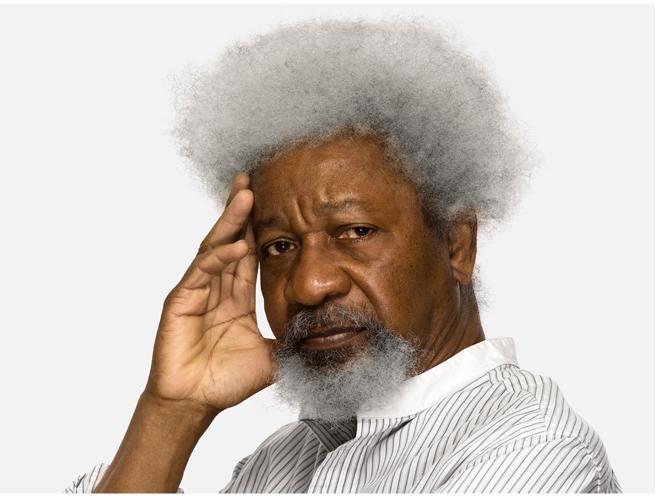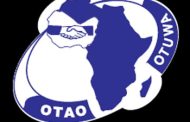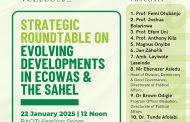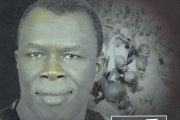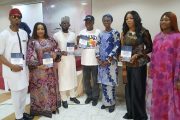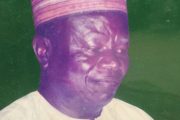Ahead of a heavily pregnant week in Nigeria, Nobel laureate Wole Soyinka is, at last, in a position to openly criticise President Tinubu and the subject matter over which Soyinka, otherwise known as ‘Kongi’ expressed dissatisfaction with Tinubu is use of live bullets on protesters by the Police. Soyinka said in a lengthy statement that the president’s address on the on-going anti- bad governance protests fell short on that.
Intervention recalls the two of Soyinka and Tinubu have been politically close. Soyinka’s silence on the conduct of the 2023 presidential elections which brought Tinubu to power and Tinubu’s performance thereafter have been subjects of social media bashing of the literary guru. There are inferences that the man is no longer dead who keeps silent in the face of tyranny, a popular signifier from Soyinka’s The Man Died
In the face of the attacks, Soyinka had said he rarely criticised incumbents before they are a year old in power. When Tinubu celebrated one year in power last June but in the name of MKO Abiola/June 12, it was still a loud silence from Soyinka.
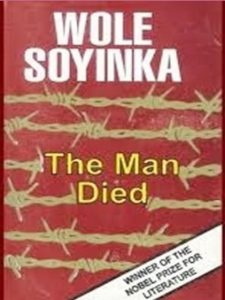
Flashback when Kongi took on tyranny more quickly
That silence has been broken even if it is friendly fire. However, what Soyinka says in the open cannot be friendly fire since everyone else reading him will make his or her own sense of it differently, implying that Soyinka no longer has control over the meaning of his own statement once he has released it. In other words, it is a big minus for Tinubu who left no one in doubt ina presidential address to the nation earlier today that his next move is further crack down on a protest that is bound to resume probably even stronger across the country on August 5th, 2024.
Soyinka identifies his concern as “the continuing deterioration of the state’s seizure of protest management, an area in which the presidential address fell conspicuously short. Such short-changing of civic deserving, regrettably, goes to arm the security forces in the exercise of impunity and condemns the nation to a seemingly unbreakable cycle of resentment and reprisals”
Kongi goes to capture in the most vigorous concepts and categories so far on the mass protests. “Live bullets as state response to civic protest – that becomes the core issue. Even tear gas remains questionable in most circumstances, certainly an abuse in situations of clearly peaceful protest. Hunger marches constitute a universal S.O.S, not peculiar to the Nigerian nation. They belong indeed in a class of their own, never mind the collateral claims emblazoned on posters”
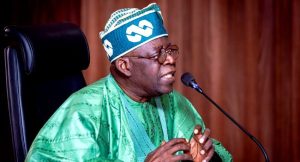 Intervention‘s reading of the statement is Soyinka impliedly dismissing obsequious claims about vulnerability of hunger marches to hijack by criminals and bandits saying, instead that hunger marches “serve as summons to governance that a breaking point has been reached and thus, a testing ground for governance awareness of public desperation. The tragic response to the ongoing hunger marches in parts of the nation, and for which notice was served, constitutes a retrogression that takes the nation even further back than the deadly culmination of the watershed ENDSARS protests”
Intervention‘s reading of the statement is Soyinka impliedly dismissing obsequious claims about vulnerability of hunger marches to hijack by criminals and bandits saying, instead that hunger marches “serve as summons to governance that a breaking point has been reached and thus, a testing ground for governance awareness of public desperation. The tragic response to the ongoing hunger marches in parts of the nation, and for which notice was served, constitutes a retrogression that takes the nation even further back than the deadly culmination of the watershed ENDSARS protests”
He then directs his verbal missiles to the nation’s security agencies whom he said could not pretend ignorance of what he refers to as “alternative models for emulation, civilized advances in security intervention.”, advancing a mockery of police professionalism by suggesting it is perhaps time to make the YELLOW VEST movement in France a compulsory viewing in policing curriculum. “In all of the coverage that I watched, I did not catch one single instance of a gun leveled at protesters, much less fired at them even during direct physical confrontations”, Kongi said, adding that “The serving of bullets where bread is pleaded is ominous retrogression, and we know what that eventually proves – a prelude to far more desperate upheavals, not excluding revolutions”
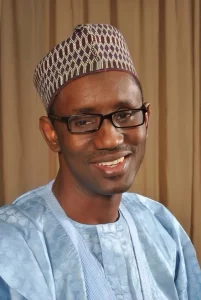
National security czar, Nuhu Ribadu
He is sure that the time is long overdue to move beyond permanent abandonment of what, in his language is “the anachronistic resort to lethal means by the security agencies of governance. No nation is so under-developed, materially impoverished, or simply internally insecure as to lack the will to set an example. All it takes is to recall its own history, then exercise the will to commence a lasting transformation, inserting a break in the chain of lethal responses against civic society”
He ends the clarion call for breaking out of primeval crowd control tactics by suggesting to today’s marchers the adoption of the key songs of Hubert Ogunde’s ‘Bread and Bullets’ if only that will help “inculcate a sense of shame in the continuing failure to transcend the lure of colonial inheritance where we all were at the receiving end”
By this statement, Soyinka has thrown it back at the rest of Nigeria because Soyinka’s statement in itself will still amount to nothing. Whatever effects it produces will depend on how it is re-interpreted, amplified and canvassed at diverse centres of power across the country: media, churches and mosques, civil society and social media platforms. The power of the statement will depend on the embarrassing subject position the consensus over it places the president and the security agencies in handling the protests to move from their colonial blinkers to more democratic crowd control practices today. What the consensus requirement implies is that there have to be more of such voices from other tendencies and corners of Nigeria.
Whether that will happen quickly enough is what Intervention cannot predict.

